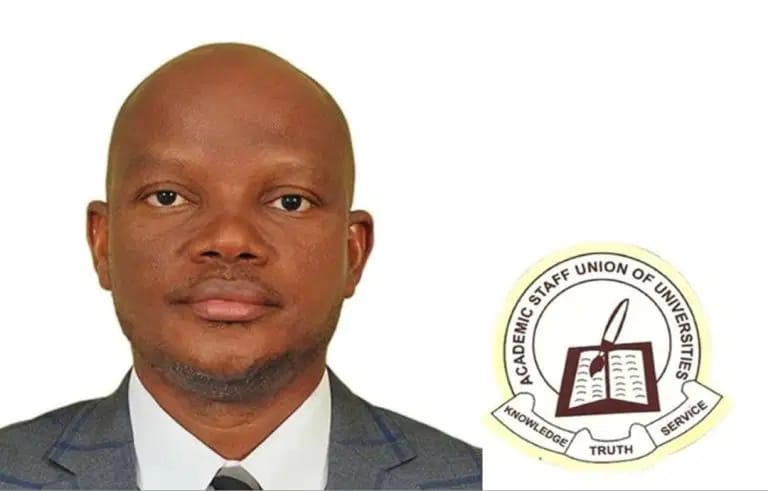A fresh wave of tension is brewing across Nigerian universities as the Academic Staff Union of Universities (ASUU) has formally rejected the Federal Government’s proposed 35% salary increase for lecturers. The decision, which came after a two-day National Executive Council (NEC) meeting held at the union’s headquarters in Abuja, signals another possible confrontation between the government and the country’s academic body.
ASUU described the Federal Government’s offer as unacceptable, inadequate, and insensitive to the current economic realities facing Nigerian lecturers and the education system at large. The union maintained that it would not accept any salary increment that falls short of the recommendations made in the Nimi Briggs Committee report — a document that was painstakingly negotiated between ASUU and the government’s representatives.
Details of the Rejected Offer
The Federal Government recently announced a proposed 35% salary increment for university lecturers and a 23% raise for non-academic staff. However, ASUU has dismissed the offer, insisting that it does not address the fundamental issues contained in the 2009 FGN-ASUU Agreement, which has been due for full implementation and renegotiation for years.
According to reports from the NEC meeting, all 89 ASUU branches across the country voted to reject the government’s offer. The union argued that the proposed increment was not based on any formal collective bargaining process but rather a unilateral decision by the government.
ASUU President, Professor Emmanuel Osodeke, reportedly told members that the offer undermines years of negotiation efforts and fails to reflect the rising cost of living, inflation, and the continuous erosion of lecturers’ salaries.
ASUU’s Core Demands and Position
ASUU’s rejection of the salary increase is rooted in its long-standing struggle for fair compensation, improved funding for universities, and genuine respect for collective bargaining. Below are the key points raised by the union:
- Implementation of the Nimi Briggs Report: The union insists that the government must adopt the recommendations of the Nimi Briggs-led committee, which reviewed lecturers’ pay based on current economic realities and global academic standards.
- Restoration of Earned Academic Allowances (EAA): ASUU demands the full payment of all outstanding earned allowances owed to its members.
- Funding Revitalization of Universities: The union wants adequate budgetary allocation to public universities to address infrastructure decay and research challenges.
- Respect for Collective Bargaining: ASUU maintains that salary adjustments should only come through negotiated agreements, not arbitrary offers.
- Addressing Brain Drain and Poor Working Conditions: The union argues that poor pay and working conditions are forcing many qualified lecturers to leave Nigeria for better opportunities abroad, creating an academic vacuum.
Why ASUU Rejected the 35% Increase
The union explained that the 35% increment may appear significant on paper but translates to very little in reality. With the cost of living skyrocketing and inflation at an all-time high, the union says the offer does not reflect the value of their service nor the economic hardship facing its members.
Professor Osodeke stated that lecturers have continued to work under poor conditions — inadequate classrooms, obsolete laboratory equipment, delayed promotions, and unpaid allowances. He stressed that the 35% pay rise would neither motivate lecturers nor solve the financial crisis plaguing the Nigerian university system.
ASUU also emphasized that the Briggs Committee’s recommendations, which proposed a structured salary increase that would make professors earn up to ₦1.2 million monthly, remain the only credible benchmark for fair remuneration. Anything short of that, the union insists, is unacceptable.
Historical Context: The 2009 Agreement and Ongoing Struggles
To understand ASUU’s firm stance, one must revisit the 2009 FGN-ASUU Agreement. This document outlined the federal government’s commitment to improving lecturers’ welfare, funding research, revitalizing universities, and providing better working conditions. However, over the years, the government has failed to fully implement the agreement, leading to multiple strikes and protracted negotiations.
In 2022, for instance, ASUU embarked on an eight-month strike after the government refused to honour previous agreements and failed to renegotiate the salary structure based on the Briggs Committee’s report. Although the strike was later called off, most of the issues remain unresolved.
The rejection of the new 35% offer shows that the union believes the government is once again attempting to make partial adjustments without addressing the root problems.
Impact on Lecturers and the University System
The rejection of the new pay offer could have far-reaching consequences if both parties fail to reach a compromise soon.
For Lecturers
- Many lecturers continue to work in financially difficult conditions, balancing academic responsibilities with personal financial struggles.
- Without a proper review of salaries, universities risk losing more skilled professionals to countries offering better opportunities.
- Morale among lecturers is expected to decline further, potentially affecting the quality of teaching and research output.
For Students
- The rejection could lead to renewed industrial action if the government does not address ASUU’s demands.
- Academic calendars may once again be disrupted, delaying graduations, project defenses, and research activities.
- Continuous strikes erode students’ confidence in the public education system, pushing more families toward expensive private institutions.
For the Education Sector and Government
- Persistent conflicts between ASUU and the government damage Nigeria’s academic reputation internationally.
- The government risks losing credibility if it continues to disregard collective bargaining agreements.
- If a strike occurs, the economic and social ripple effects could be significant, affecting millions of students and their families.
What ASUU Wants Moving Forward
ASUU has made it clear that it is open to negotiation — but only if the discussions are meaningful, transparent, and based on the principles of fairness. The union has called on the Federal Government to:
- Resume negotiations based on the Briggs Committee’s framework.
- Implement previously signed agreements without further delays.
- Prioritize education funding as a national development strategy.
The union also urged Nigerians to understand that their struggle is not only about salary increments but about ensuring quality education, research advancement, and the future of Nigeria’s universities.
Possible Outcomes and What to Expect Next
With all ASUU branches rejecting the offer, the government may be forced to return to the negotiation table to prevent another strike. However, if both sides fail to find common ground, the academic sector may witness yet another round of industrial unrest.
Students, parents, and university authorities are now on edge, anxiously waiting to see how the government responds. ASUU’s NEC is expected to issue further directives to its members depending on the government’s next move.



